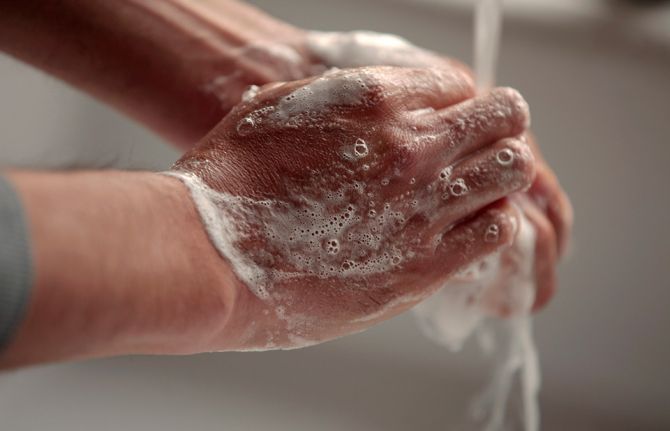

Feature Story
UNAIDS and Reckitt Benckiser join forces to distribute hygiene packs to people living with HIV during the COVID-19 outbreak
17 April 2020
17 April 2020 17 April 2020UNAIDS Regional Support Team for Eastern and Southern Africa (RST ESA) and Reckitt Benckiser (RB) have today joined forces to distribute more than 195 000 “hygiene packs” to people living with HIV in the eastern and southern African (ESA) region. Twenty-five thousand additional packs will be supplied to Nigeria and Egypt.
The packs consist of a three-month supply of Dettol soap and Jik surface cleaner and will be distributed in 19 ESA countries through UNAIDS Country Offices and networks of people living with HIV as part of efforts to reduce exposure to the impact of COVID-19 among people living with HIV.
The ESA region has the biggest burden of HIV globally, with 20.6 million people living with HIV in 2018. While countries in the ESA region are currently relatively unaffected by COVID-19, it is critical to take bold and unprecedented steps to curtail the spread of the virus now, due to fragile health systems and extreme socio-economic inequalities.
“UNAIDS will be working closely with communities and networks of people living with HIV at a country level in the coming weeks to facilitate distribution of the hygiene packs. As we continue to respond to the COVID-19 pandemic in this region, it is important that communities lead and that we put people at the centre,” said Aeneas Chuma, Director of the UNAIDS RST ESA, a.i.
The initiative to distribute the hygiene packs is part of RB’s “Fight for Access Fund”, which aims to improve access to health, hygiene and nutrition for all.
“We are delighted to partner with UNAIDS, in our collective response to the global COVID-19 pandemic,” said Russell Taylor, RB’s Regional Director Africa, Health. “Our immediate focus is to address the stress faced by our consumers and communities where we operate, to break the chain of infection. The distribution of the hygiene packs to people living with HIV in a region which is heavily affected by the AIDS epidemic is a critical part of our response.”
Although there is currently no clear evidence that people living with HIV are at an increased risk of acquiring COVID-19 or of becoming more ill from it, many people living with HIV are ageing and/or have other health conditions. These include Tuberculosis, heart disease or lung disease, which are known to make people susceptible to more severe COVID-19 disease.
In addition, there are 6.8 million people living with HIV in the ESA region who do not have access to antiretroviral therapy which may compromise their immune systems.
Thus, UNAIDS encourages people living with HIV to take precautions to reduce exposure to COVID-19 and to reach out to their health-care providers to ensure they have adequate stocks of essential medicines. This includes following World Health Organization (WHO) guidelines of washing and/or sanitizing hands, practicing social distancing, and seeking health care if one is ill.



